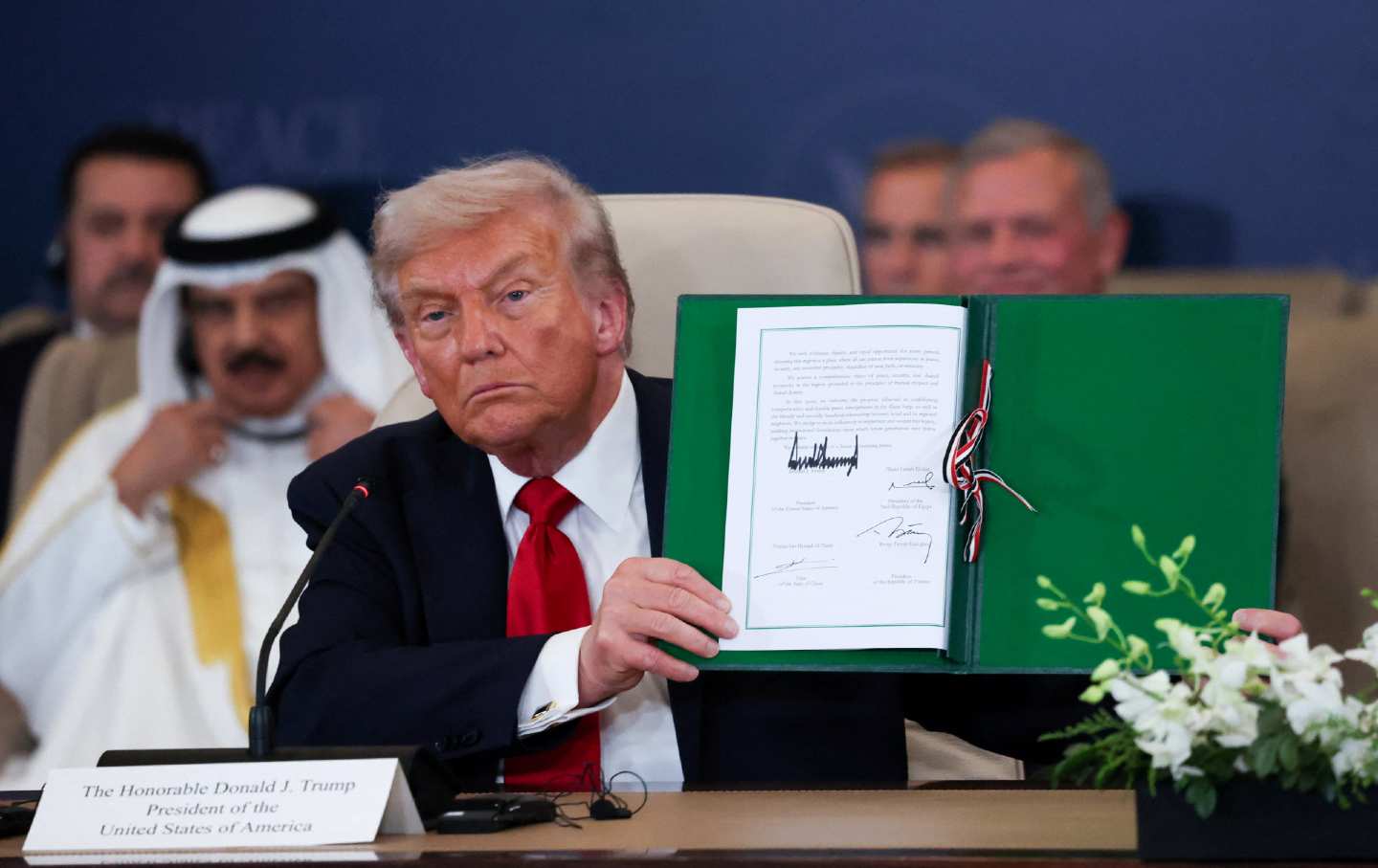October 15, 2025
Amid a growing political crisis, the French president is forced to abandon his signature reform.
France's political crisis has taken many dramatic turns over the past 12 months, but instability reached new heights last week with the sudden resignation and reinstatement of Prime Minister Sebastien Lecornu. It all started on the morning of October 6, when the prime minister announced his resignation just a few hours after presenting the composition of his government. Allegedly in office 14 hoursLecornu's first cabinet can be considered one of the shortest-lived governments in European history. Appointed by President Emmanuel Macron in early September, he has already been the country's third prime minister since the fall of 2024.
But Macron reappointed his close ally on Friday after days of turbulence that had the country heading towards another dissolution of the National Assembly. “I proposed a government based on a simple mission and objections,” the reinstated Lecornu said in his inaugural address to parliament on Tuesday, after presenting a draft 2026 budget that included savings of around 30 billion euros. Facing a wave of no-confidence votes planned for this Thursday, Lecornu called on the fractured lower house to “move beyond the differences in our thinking and priorities and focus on what can be done together.”
But the prospect of another government collapse faded as Lecornu offered an important concession to the centre-left: the suspension of the 2023 pension reform, which raised the retirement age from 62 to 64. “I will propose to parliament to suspend the 2023 pension reform until the presidential election,” Lecornu told representatives on Tuesday, backing freezing Macron’s second-term signature reform.
The law was passed in the face of intense public opposition thanks to a special power that allows laws to be passed without a direct vote in parliament – the so-called “49.3”, referring to its article in the French Constitution. This defiant show of force came after a wave of protests and strikes and remains one of the main rallying calls against the president.
The suspension of the pension law was the main demand of the Socialist Party, the wavering bloc that Lecorne needs to achieve to survive a vote of no confidence. “I'm still in the opposition, but I want there to be a debate,” PS leader Olivier Faure said in a prime-time interview on Tuesday night, confirming the center-left party would not support Thursday's no-confidence motion. Assuming everyone in Lecornu's fractious minority coalition backs him, more than a third of PS faction MPs would have to break the party line to bring down the government.
Hopes for a pause in pension reform rose last week as discipline broke down even among many of Macron's most ardent supporters. In an interview last Tuesday with the magazine ParisianElizabeth Bourne, prime minister during the 2023 legislative campaign, suggested that the president's allies agree to suspend the law. “We need to know when to listen and act,” Bourne said, arguing that such a concession could come at the cost of “the stability of the country.”
Resisting attacks on pension reform has been a priority for the president's camp since the election of the current hung parliament in July 2024. Lecornu's retreat thus risks alienating some members of the minority centrist-conservative coalition. His promise to parliament to take up the issue means he could still fall victim to obstruction. (For now, Lecornu has also promised that his government will abandon the use of “49.3” – the same power used to pass the 2023 law, although it is traditionally reserved for budgeting.) Already last spring, a round of negotiations between unions and business lobbies tasked with proposing amendments to pension reform ended without reaching an agreement.
But for all the reform's symbolic importance to Macron and his allies, the actual cost of the suspension is itself dwarfed by the wider imbalances that have led to France's budget crisis. By Lecornu's own estimates, the suspension will cost several hundred million euros in 2026 and approximately 1.8 billion euros by 2027. That's still well below the 13 billion euros of damage estimated to have resulted from the collapse of Prime Minister Michel Barnier's government last December.
What also brings the PS and the Macronist bloc together is a shared fear of the thought of early elections – the likely next step if parliament votes against the Lecornu government. All polls show that a return to voting booths would most serve to strengthen the power of the far-right National Rally. The far-right force is already the largest party in parliament, which is divided into 11 official factions.
Since the collapse of the first Lecornu government on October 6, the line of the far right has been that they will not agree to anything short of new elections.. “We want new elections and therefore we want the dissolution of the National Assembly,” Le Pen told reporters at the National Assembly before Lecornu’s speech. “We will condemn any government proposed by Emmanuel Macron.”
If he survives a vote of no confidence on Thursday, Lecornu's next fight will be to approve an austerity budget, as the premier points out that retirement costs will need to be offset by savings elsewhere in the future. As part of the 2026 fiscal package, Lecornu aims to reduce France's government deficit to below 5 percent of GDP, down from the 5.4 percent of GDP expected in 2025. budget plan In his report Tuesday, he called for modest increases in the incomes of the super-rich, although they fall far short of the comprehensive financial reforms called for by the left.
However, the PS still calls it “victory.” “Tonight I am happy for the 3.5 million French people who will be able to retire early,” said Faure, the PS leader. said on Tuesday evening.
Popular
“swipe left below to view more authors”Swipe →
The party hopes that the fight against the suspension of pension reform will justify its decision to leave the New Popular Front, a left-wing alliance formed during the 2024 snap elections. The remaining three parties of the NFP – the Environmentalists, the Communist Party and France insoumise – supported the overthrow of the government.
The PS will also point to Lecornu's retreat to remove accusations of treason, especially on the part of France insoumise. “Macron only knows how to act like Macron,” leftist leader Jean-Luc Mélenchon return shot after re-appointing Lecornu on Friday.
Still, it's hard not to enjoy the latest turn of events. On Monday, Macron tried to place blame on the opposition, which he considered “one responsibleBut the first significant de-escalation of the crisis in France came with the retreat of the president, whose approval rating had fallen to a record low. two thirds According to a poll conducted last week, part of the population favors a new dissolution of parliament. An even clearer majority—70 percent, according to one study— they want Macron’s resignation, and even such close allies as former Prime Minister Edouard Philippe have joined these calls.
The macronists' short-term agreement with the PS is intended to buy time – with the implicit recognition that new elections are ultimately the only solution.
More from Nation

An industry built on addiction and loss now wields enormous political and cultural influence, from NFL stadiums in Philadelphia to soccer stadiums in Sao Paulo.

The Palestinians are expected to accept the same deal that led to October 7: permanent subjugation under the guise of “prosperity.”

Machado's record mocks the idea that she is a committed peace activist, democracy promoter or unifying figure.

A conversation with Robert Malley about Israel's actions in Gaza and the West Bank, why the US has failed to bring peace to the region, and his recent book Tomorrow will be yesterday.

The president's unprecedented and lawless attacks are ostensibly aimed at drug cartels, but serve a much more troubling political agenda.










